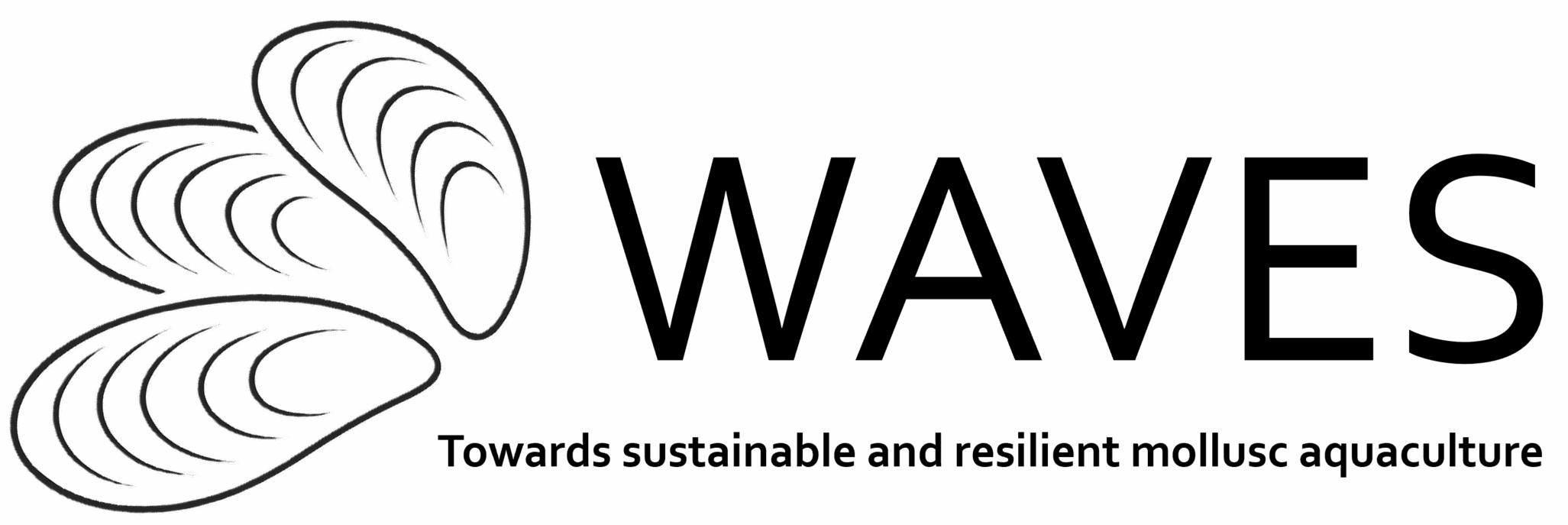Project partners and team
The WAVES Consortium consists of partners in the United Kingdom (University of Southampton, University of Stirling, Royal Veterinary College London, Newcastle University, University of Northumbria Newcastle), Indonesia (Marine and Fisheries Polytechnic of Jembrana), Malaysia (Universiti Sains Malaysia and WorldFish), and Viet Nam (Can Tho University and Research Institute of Aquaculture No. 1 [RIA1]).
WAVES Consortium leader
Prof. Chris Hauton, WAVES Consortium lead (University of Southampton, UK)
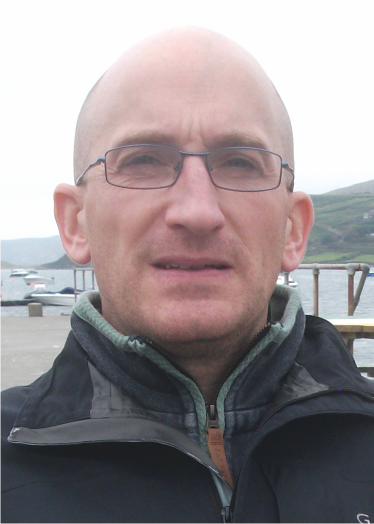
Chris Hauton is a Professor of Marine Ecophysiology at the University of Southampton and Head of the School of Ocean and Earth Science. As Head of School, I lead and represent >60 academics, with associated technical and professional service staff, across the broad fields of marine and geosciences. Chris is also the lead PI of the Marine Invertebrate Physiology and Immunology Lab. Chris’s research interests include all aspects of marine invertebrate ecophysiology and immunology, essentially how natural and anthropogenic environmental drivers impact organism biology and host pathogen interactions. His research encompasses all levels of biological organization from molecular studies of gene expression to assays of whole organism physiology. Whilst most work is conducted as controlled laboratory experiments, he has also worked on shellfish farms through Asia.
Work Package and institutional leads
Dr Andrew Desbois (Project lead at University of Stirling, UK), Work Package co-lead
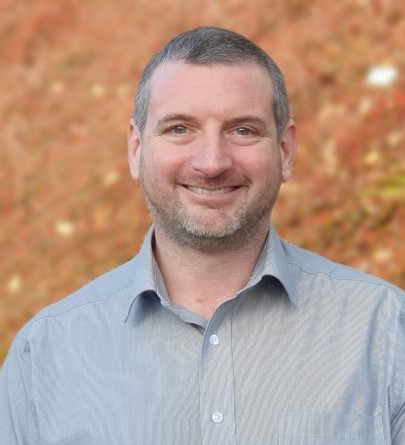
Dr Andrew Desbois is a microbiologist whose research concerns the microbiology of aquaculture systems with a key aim to characterise, prevent and control bacterial infections in aquatic animals. Dr Desbois applies a range of methods in his research from bacterial culture and molecular microbiology through to systems thinking and participatory approaches. He has led and contributed to research projects on various aquatic host species ranging from temperate marine shellfish and salmonids to warm-water shrimp, tilapia and catfish, all cultured in diverse production systems. Antimicrobial resistance provides a special focus for his work, including describing the scale of this problem through to identifying and evaluating possible interventions.
Dr Lucy Brunton (Project lead at Royal Veterinary College, London, UK), Work Package co-lead
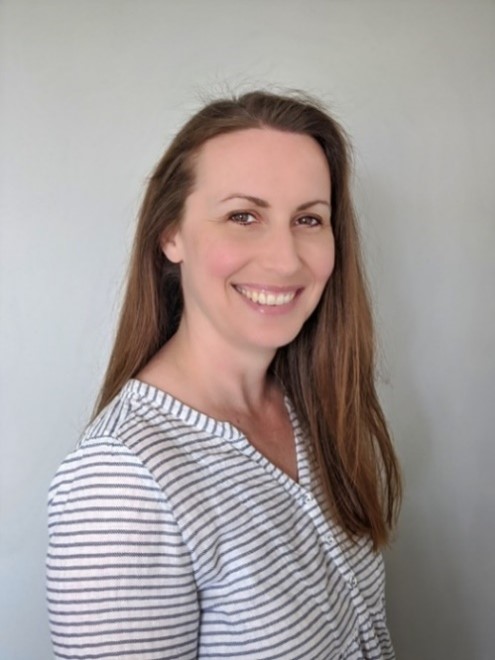
Dr Lucy Brunton is an epidemiologist with a background in microbiology. Having worked for seven years at the UK’s Animal and Plant Health Agency where she conducted epidemiological research in the areas of food-borne disease, antimicrobial resistance and bovine tuberculosis, she joined the Royal Veterinary College in February 2017. Her research focuses on understanding the molecular epidemiology of antimicrobial resistance and using One Health systems approaches to tackle this complex problem. She is particularly interested in the role that food animal production plays in contributing to the emergence and spread of antimicrobial resistance, and the increased burden of antimicrobial resistance on health and livelihoods in LMICs. Her research has involved using a ‘systems-thinking’ approach to map aquaculture systems in Vietnam to identify hotspots for the emergence and selection of resistance and human exposure to antimicrobials and antimicrobial-resistant organisms.
Prof. Dr Aileen Tan Shau Hwai (Project lead at Universiti Sains Malaysia), Work Package co-lead
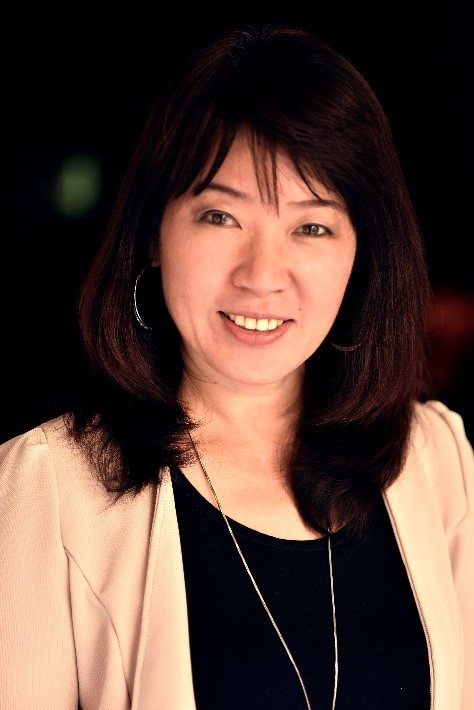
Aileen Tan is the Director of Centre for Marine and Coastal Studies (CEMACS) in Universiti Sains Malaysia; Fellow of Academy Science Malaysia; Executive Director of the Asia-Pacific University-Community Engagement Network (APUCEN) and Vice Chair of UNESCO IOC of Western Pacific. She is also a Board member of Partnership for Observations of the Global Oceans (POGO). She serves as international steering committee in several organisations such as CoastPredict, Global Ocean Oxygen Network (Go2NE), The Ocean Science Fund for All, Global Ocean Corps, Marine Life 2030, Ocean Biomolecular Observing Network (OBON), IOC Ocean Best Practices System (OBPS), Global Partnership on Plastic and Marine Litter; and EquiSea. A pioneer in the area of green aquaculture in Malaysia, she has been a champion of mollusc culture for the last 35 years. Her work with mollusc culture, which is centred on providing an alternative livelihood for coastal communities, is aligned with the Sustainable Development Goals (SDG 1) of reducing poverty while aiming to stimulate actions to promote prosperity and protecting the planet to achieve sustainable development, in line with Blue Economy.
Prof. Craig Hutton (University of Southampton, UK), Work Package co-lead
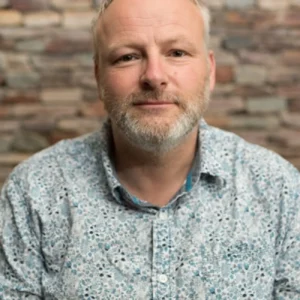
Prof. Hutton’s applied research lies at the intersection between development, adaptation and the social and policy implications of environmental/climate change and sustainable management. This socio-environmental research emphasises the coordination of spatial data handling and the management/policy/governance implications of climate change/environmental vulnerability of communities, land cover and earth observation in decision-making support systems.Current areas of research include; (i) The development of spatially explicit sustainable livelihood framework (SLF) capitals (such as social capital, natural capital) that can act as inputs to the development of livelihood policy relevant socio-ecological clusters within poor rural landscapes; (ii) working with Government of Bangladesh, using integrated models to test the socio-environmental consequences of specific coastal engineering intervention as part of the Bangladesh Delta Plan 2100; (iii) Developing an integrated understating of the socio-environmental conditions, SDG applications and policy/management requirements within the changing dynamics of large-scale delta and associated river system in South and South East Asia; (iv) Developing Scenarios of plausible future states of delta systems with stakeholders.
Dr Van Pham Dang Tri (Project lead at DRAGON Institute, Can Tho University, Viet Nam), Work Package co-lead
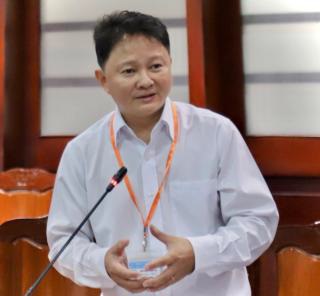
Van Pham Dang Tri currently serves as the Director of the Research Institute for Climate Change (DRAGON-Mekong) at Can Tho University, Viet Nam. His primary focus is on conducting comprehensive research on delta management, particularly examining the impacts of climate change on global delta systems, with a specific emphasis on the Mekong Delta. Dr. Tri is dedicated to enhancing the capacity of local stakeholders, including government entities, businesses, and local communities. To achieve this goal, he has established networks aimed at fostering understanding between stakeholders and the scientific community, ultimately facilitating science-based decision-making at various levels. Additionally, Dr. Tri is actively involved in numerous national and international projects, where he serves as a project manager or technical advisor.
Dr Oliver Hensengerth (Project lead at University of Northumbria Newcastle, UK), Work Package co-lead
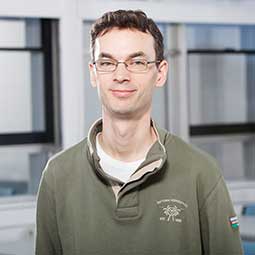
Dr Oliver Hensengerth is an interdisciplinary political scientist, based at Northumbria University in the UK. His research focuses on freshwater governance, with a particular interest in how resource-dependent communities deal with having too much or too little water. Conceptually, he is interested in questions of environmental justice, relationships between water and identity, multilevel governance, and governance across scales. His research has been funded by the British Academy, the Newton Fund, UKRI and other funders. He is currently leading the ISPF-funded project Adapting Crisis Responses to Salt-Droughts in the Mekong Delta, Vietnam (partner: DRAGON-Mekong Institute, Can Tho University, 2024-2026). Recently expired projects include the Innovate UK project FITS Power Plant – Cambodian Island Community, led by Achelous Energy (2024-2025); and the GCRF Research Hub Living Deltas, led by Newcastle University (2019-2024).
Dr Laura Khor Li Imm (Project lead at WorldFish, Malaysia), Work Package co-lead

Laura Khor is currently working as a Research Fellow with the Aquatic Animal Health and One Health teams at WorldFish, Penang. She received her B.Sc. degree in Marine Science and subsequently Masters in Aquaculture from Universiti Malaysia Sabah. Following the completion of her degree, she worked for 11 years as a Quality Control Manager with coastal cage farmers to manage their fish mortalities and improve farm management practices, while leading the farm good aquaculture practices (GAP) certification process at a private aquaculture company in Malaysia. Upon joining her current organization, Laura has worked on the development of various surveys relevant to fish epidemiology and antimicrobial use in aquaculture for projects based in Nigeria, Bangladesh, Ghana, Kenya and Malawi. She has also led stakeholder consultations to contextualize data collection tools, as well as the design of capacity-building programs, digital e-learning courses, and training resources tailored for field practitioners, students, and researchers in collaboration with international partners and other CGIAR institutions
Thi Lua Dang (Project lead at Research Institute of Aquaculture No. 1, Vietnam), Work Package co-lead
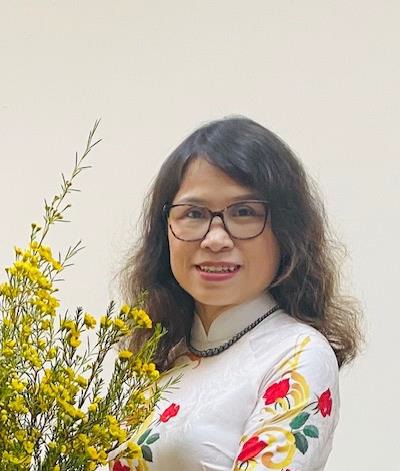
Assoc. Prof. Dang Thi Lua is currently the Director of Research Institute for Aquaculture No.1 (RIA1), a national research institute under Ministry of Agriculture and Rural Development (MARD) in Vietnam. She has been an aquatic animal health specialist for more than 25 years and currently responsible as the leader of research group on aquatic animal diseases at RIA1. She obtained her PhD degree (Applied Marine Biosciences) in 2008 and her MSc (Aquatic Biosciences) in 2005 at Tokyo University of Marine Science and Technology, Japan and her BSc degree (Aquaculture) at Nha Trang University of Fisheries, Vietnam in 1998. She was also involved in postdoctoral fellowship program at the Tokyo University of Marine Science and Technology during 2008-2010 and become supervisor of many students and PhD candidates. Dr. Dang Thi Lua has been a pivotal figure in maintaining and advancing the development of a leading aquaculture institute in Vietnam. She has successfully led and contributed to numerous research and development projects in her field, supported by funding from both international and national organizations. She has been actively involved in leading and contributing to projects on mollusk research, water environmental monitoring, mollusk diseases, and adapting aquaculture to the effects of climate change. She has published about 100 peer-reviewed scientific papers in reputable journals focusing on aquatic animal health and aquaculture.
Prof. Vu Ngoc Ut (Project lead at College of Aquaculture and Fisheries, Can Tho University, Viet Nam)
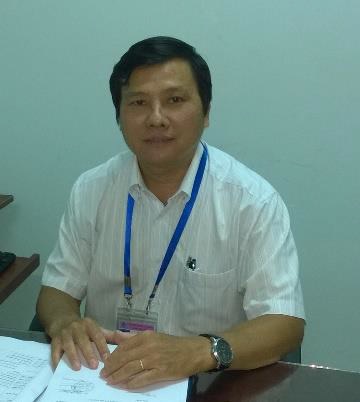
Dr. Vu Ngoc Ut is a Professor in Aquaculture and Rector of the College of Aquaculture and Fisheries, Can Tho University, Viet Nam. His interest fields include Aquatic zoology and ecology; Aquatic biodiversity; Live food production and application in aquaculture; Circular economy in aquaculture; Aquatic bio-monitoring and water quality management; and integrated multitrophic aquaculture. He graduated his MSc program in Aquaculture at Ghent University, Belgium in 1997 and earned his PhD degree in applied marine biology and aquaculture from University of Wales Bangor, UK in 2003. Dr. Vu Ngoc Ut has experienced in teaching and research in aquaculture for more than 30 years. He has supervised more than 10 PhD students and 50 MSs students. Dr. Vu Ngoc Ut has also led more than 25 different projects including international, ministerial and provincial projects covering different fields related in aquaculture. He has also published more than 150 papers in which 38 of them are on Scopus/WoS journals. He has recently been awarded 2 projects funded by VLIR-OUS and Gestic, Belgium in collaboration with Ghent University on resilient and sustainable aquaculture in the Mekong Delta, Viet Nam.
Prof. Ilham Ilham (Project lead at Marine and Fisheries Polytechnic of Jembrana, Indonesia)
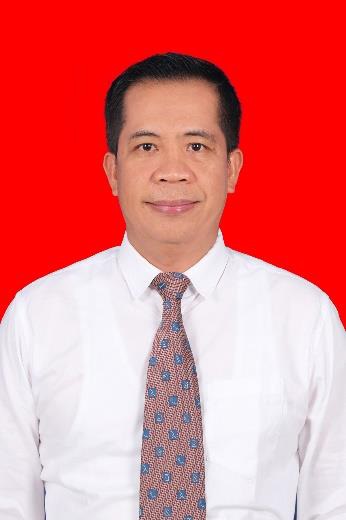
Ilham is a quality-oriented professional with almost 25 years’ experience in teaching, research and international collaboration. He is the Director of Marine and Fisheries Polytechnic of Jembrana (MFPJ, a vocational university managed by the Indonesian Ministry of Marine Affairs and Fisheries), in addition to his academic role as the Associate Professor at the Department of Aquaculture – MFPJ. Ilham’s expertise lies within the aquaculture and fisheries sustainability issues, with specific emphasis on aquaculture feed and nutrition. He has obtained competitive grants from several international bodies including UNIDO (SMART-Fish Project), European Union (EURASTiP), Erasmus+ EU (Sustainable Seafood and Nutrition Security), and Nuffic-The Netherlands (NICHE Project). In 2019, Ilham joined Illuminating Hidden Harvests (IHH) as Team Leader for Indonesia. IHH is a global initiative of FAO, Duke University, and WorldFish to generate and disseminate new evidence about the benefits, interactions and impacts of small-scale fisheries to inform policy and practice. The initiative helps to inform all levels of policymaking processes and contributes to empowering fishing communities, their organizations, and advocates to make a strong case for productive, sustainable, and equitable small-scale fisheries. Ilham is an active member of the Indonesian Aquaculture Society – World Aquaculture Society. He has also participated in both national and international academic and professional conferences. For this purpose, he has visited countries such as Malaysia, Thailand, Vietnam, UK, Norway, The Netherlands, Italy, South Korea, Fiji, and Australia.
Dr Marie McIntyre (Project lead at Newcastle University, UK)

Marie McIntyre is a Translational Food Safety Partnership Fellow working with the Food Standards Agency. An epidemiologist, she focuses on identifying the drivers of and control measures for infectious diseases impacting human and veterinary public health. She is particularly interested in using a One Health ethos in research examining food safety and security issues using systems-based approaches. Marie is a member of the Modelling, Evidence & Policy team in the School of Natural and Environmental Sciences at Newcastle University.
Consortium members
Prof. Steve Rushton (University of Newcastle, UK)
Steve Rushton is an epidemiological and biological systems modeller who specialises in researching complex disease systems. He is particularly interested in foodborne pathogens and zoonoses. He uses modelling approaches to investigate disease systems from molecular to population scales. Steve is a member of the Modelling, Evidence & Policy team in the School of Natural and Environmental Sciences at Newcastle University.
Prof. Robert Marsh (University of Southampton, UK)
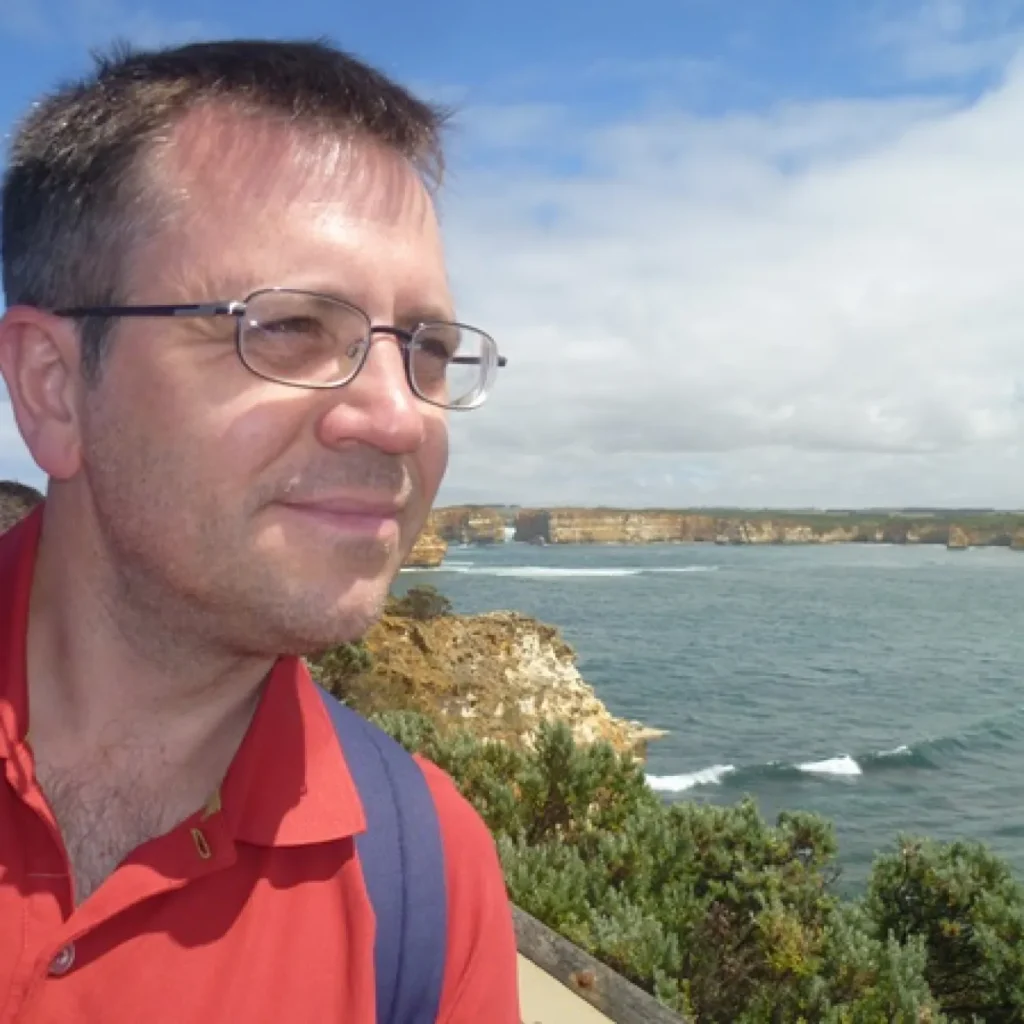
Professor Robert Marsh has extensive experience of observing and modelling the oceans and climate. In current projects and collaborations, he applies knowledge of ocean state (e.g., temperature), ocean currents and surface weather to pressing environmental challenges. Specifically, he is developing systems for monitoring and forecasting the extent of sargassum seaweed across the tropical Atlantic. This work is designed to inform decision-makers and local communities who have been recently challenged by extensive beaching of sargassum at coastlines around the Caribbean and west Africa. He is also investigating links between the Arctic and our mid-latitudes, where some weather extremes may be attributed to rapid warming and sea ice decline. In other research directions, he investigates the drivers of year-to-year variations in Atlantic hurricane seasons, towards better seasonal forecasts, and the long-term changes in Indian monsoon climate of consequence for aquaculture.
Dr Louise Coutts (University of Southampton, UK)
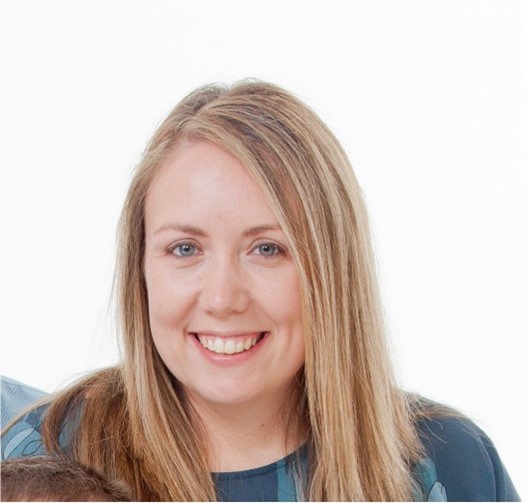
Louise Coutts is a specialist in machine learning and modelling dynamical systems. Her current work involves building dynamical models that incorporate a range of health related markers from a diverse range of data, to evaluate an individual’s risk of developing health conditions in the future. She has extensive experience of working with large, diverse sets of data in different formats, including time domain, text and images, for a range of applications.
Dr Tran Minh Phu (College of Aquaculture and Fisheries, Can Tho University, Vietnam)
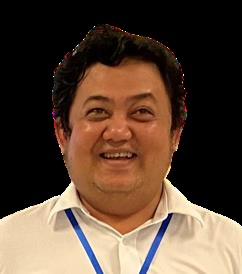
A/Prof. Tran Minh Phu is the Vice Rector of the College of Aquaculture and Fisheries at Can Tho University, Vietnam. He earned his Master of Science in Marine Coastal Development, specializing in Aquaculture, from the Norwegian University of Science and Technology (NTNU) in Norway. Dr. Phu later completed his PhD in Immunology and Infectious Disease at the University of Copenhagen, Denmark. With over 20 years of experience in teaching and research, Dr. Phu has made significant contributions to the fields of aquaculture and seafood safety. His research interests encompass fish nutrition, the use of chemicals in aquaculture, the pharmacokinetics of antibiotics in aquatic animals, and fish welfare. He has led and participated in 15 research projects, supported by both national and international funding sources. Dr. Phu has published over 80 peer-reviewed papers, with 48 indexed in Scopus and WoS journals.
Dr Annette Jaya Ram (Universiti Sains Malaysia)
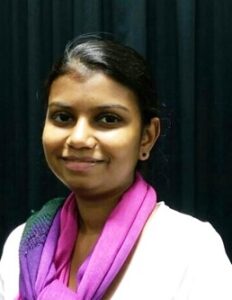
Annette is a lecturer at the Centre for Marine and Coastal Studies (CEMACS), Universiti Sains Malaysia (USM). She has dedicated her career to advancing sustainable aquaculture practices to address pressing food security issues. Her research primarily focuses on understanding the nutritional needs and behaviours of marine invertebrates, specifically, sea cucumbers, mantis shrimps and mud crabs, cultivated in controlled lab environments. Her work aims to improve culture practices, reduce production limitations, and ultimately contribute to a more sustainable seafood production system. Beyond her scientific endeavours, Annette and her team at CEMACS are deeply committed to fostering environmental stewardship. They conduct public outreach and educational programs, raising awareness about marine biodiversity and conservation, particularly on the issue of marine plastic pollution and its impact on ecosystems. Through her work, she seeks to inspire both academic and public communities to protect marine environments for future generations.
Dr Abe Woo (Universiti Sains Malaysia)
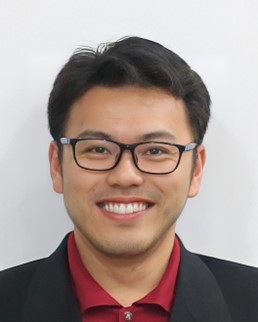
Abe Woo Sau Pinn received his PhD in Natural History Sciences from Hokkaido University in 2018. He has been studying the diversity and systematics of sea cucumbers across the region. In collaboration with scientists from Japan, Thailand, Australia, and Viet Nam, he is now leading several marine biodiversity research projects in the Southeast Asian region that includes several taxa of marine invertebrates. He has expanded his research area into the development of sustainable, smart and precision aquaculture of several important species of Echinoderms and Crustacean both for poverty alleviation and ecosystem restoration through regenerative aquaculture systems. He is currently serving as the Deputy Director in the Centre for Marine and Coastal Studies (CEMACS), Universiti Sains Malaysia. At the same time, he is passionate in creating awareness and education of marine sciences to the society through various educational programmes done in CEMACS with the concept of experiential learning for marine sciences.
Dr Sazlina Salleh (Universiti Sains Malaysia)
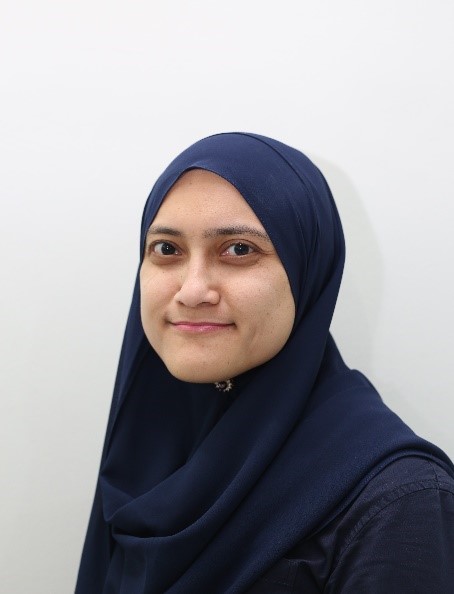
Sazlina Salleh is an ocean scientist with extensive expertise in marine conservation and policy development. Currently an Associate Professor at the Centre for Policy Research, Universiti Sains Malaysia, she holds a Ph.D. in Marine Science from the University of Tasmania. Her research focuses on marine biodiversity, conservation policy, marine spatial planning, and the impacts of climate change on marine ecosystems. Her work in marine conservation emphasises critical areas such as eutrophication monitoring, coral and seagrass ecosystem health, and the climate resilience of marine species. She strongly advocates for sustainable ocean governance and actively promotes the integration of scientific findings into policy frameworks. She is deeply committed to advancing sustainable conservation policies and champions data sharing and management as key tools for improving marine management strategies.
Dr Mozhdeh Shiranirad (University of Southampton, UK)
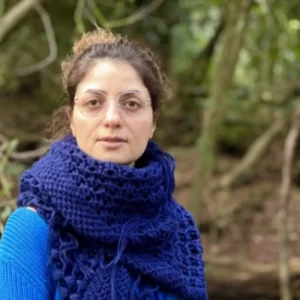
Mozhdeh has a diverse academic background in mathematics and information science and technology, with a Ph.D. in chemical engineering. Her research focused on applying machine learning techniques in simulating water and metal-oxide interfaces. Throughout her master’s and doctoral studies and an industrial role as a principal scientist, Mozhdeh actively applied mathematical modeling and predictive machine learning techniques to address complex challenges in real-life data scenarios. In her current role, Mozhdeh leverages her technical background to explore the life-course determinants of early-onset multimorbidity. Her goal is to utilize artificial intelligence to unravel crucial insights in the realm of healthcare research. With a solid foundation in mathematics, information science, and chemical engineering, Mozhdeh exemplifies a multidisciplinary approach in applying cutting-edge technologies to address pressing issues in public health.
Dr Matthew Sprague (University of Stirling, UK)
Dr Mathew Hennessey (Royal Veterinary College, London, UK)
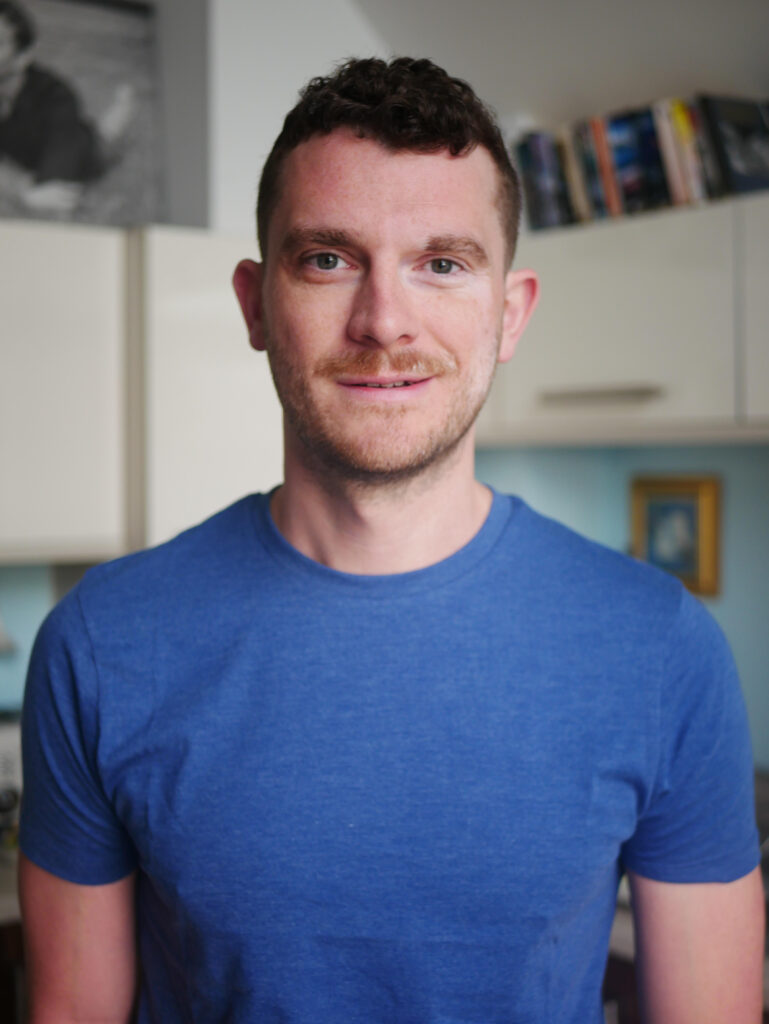
Mat Hennessey is a veterinarian and post-doctoral researcher in veterinary social science at the Royal Veterinary College (RVC), UK, where he works in the Food Systems research group and department of Pathobiology and Population Science. His research revolves around the sustainability of food production, with a focus on systems in the UK and South and Southeast Asia. He has worked extensively on poultry production systems and on understanding antibiotic usage. Mat’s expertise lies in qualitative research methodology and methods, to integrate social theory into veterinary and One Health research.
Dr Maria Garza (Royal Veterinary College, London, UK)
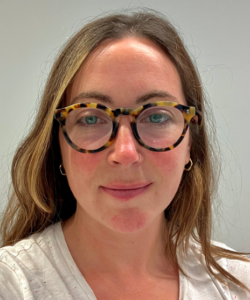
Maria graduated in Veterinary Medicine (University of Zaragoza, Spain), obtained an MSc in One Health at the Royal Veterinary College (RVC) and the London School of Hygiene & Tropical Medicine (LSHTM), and completed a PhD at the RVC in 2023, entitled “Investigating antimicrobial resistance in freshwater aquaculture systems in Vietnam and informing mitigation action through systems thinking”. In her research, she is interested in the application of systems thinking approaches and political economy theories to better understand the role of policy, interventions, and drivers of transformation, and to tackle challenges in aquaculture as socio-ecological systems. During her time at the RVC, she has conducted multiple research activities in Vietnam in collaboration with the Research Institute for Aquaculture No. 1 as the main partner, and conducted projects in other Asian, African, and European contexts alongside national and international stakeholders. Since 2024, she has been a Research Fellow at the Department for Environment, Food & Rural Affairs (UK Government), working on various projects aimed at bridging science and policy, involving the development of systems approaches to inform policies that address emerging risks to the environment, animal health, and public health in the UK.
Dr Chu Chi Thiet (Research Institute of Aquaculture No. 1, Vietnam)
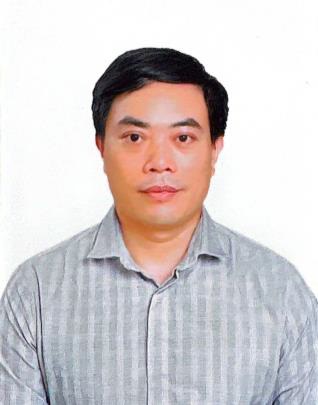
Member of international project: Responsible for socio-economic and livelihood evaluation of estuary environmental issues project in Nghe An, funded by DANIDA. Director of international project: Development of clam culture for improvement and diversification of livelihoods of the poor coastal communities in Central Vietnam. Project funded by AusAID. Director of national project: Development of clam hatchery technology in large scale, funded by Vietnamese Government, under Ministry of Agriculture & Rural Development. Director of national project: Development of demonstration modern on technology and production of seed clam (Meretrix lyrata) in three Provinces of Nam Dinh, Thai Binh, Nghe An, funded by Vietnamese Government. Director of national project: Improvement of technology protocol and equipment for cage culture in open sea areas and applying to culture of cobia (Rachycentron canadum). This project belongs to Governmental Programme of main point of Science and Technology, under Ministry of Science and Technology. Manager of hatchery under Aquaculture Research Sub-Institute for North Central, Research Institute for Aquaculture No1, which have been produced seed of hard clams, oysters, and marine fin fish since 2005.
Luu Thi Ha Giang (Research Institute of Aquaculture No. 1, Vietnam)
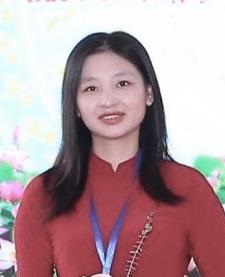
Ms. Luu Thi Ha Giang is a dedicated aquaculture researcher and international cooperation specialist with extensive experience in aquaculture biotechnology, molecular genetics, and selective breeding. Ms. Giang has over a decade of professional experience at RIA1, serving in various roles including laboratory manager, deputy head, and researcher in genetics, selective breeding, and aquaculture technology transfer. She has led and contributed to several national and international projects, including selective breeding program for common carp, tilapia, and others species. Her current work includes serving as the secretary and component leader for a Korean-funded technical cooperation project to improve aquaculture productivity in northern Vietnam. Her expertise and research have significantly contributed to advancing aquaculture breeding technologies and genetic resource conservation in Vietnam. With advanced English proficiency, she actively collaborates with international partners to promote sustainable aquaculture practices and capacity building in the field.
Dr Pham Thai Giang (Research Institute of Aquaculture No. 1, Vietnam)
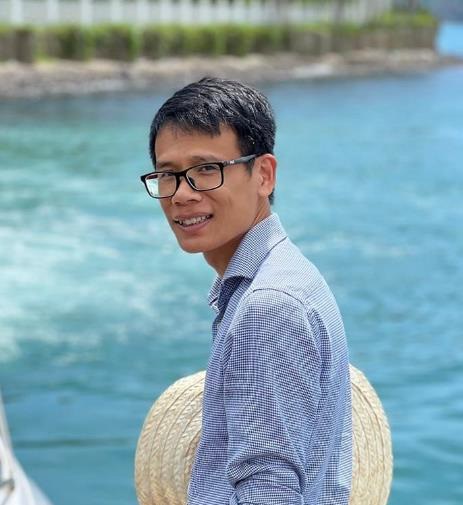
Dr Pham Thai Giang has 16 years of experience in the field of aquaculture. He graduated with a bachelor’s degree in 2007 from Hanoi University of Agriculture (now Vietnam National University of Agriculture). In 2008, he began working at the Research Institute for Aquaculture No. 1. Dr. Giang earned his master’s degree in Agricultural Sciences in 2012 from Szent István University, Hungary, and completed his Ph.D. in Aquaculture at the University of South Bohemia, Czech Republic. Currently, Dr Giang serves as the Head of the Environmental Research Department at the Center for Environment and Disease Monitoring in Aquaculture. He has participated in and led numerous scientific research projects at both national and international levels. Dr Giang has published 30 scientific papers in the fields of aquaculture and environmental studies, including many in Q1-ranked journals. Dr Giang possesses extensive expertise in aquaculture environment and disease, with a particular focus on mollusk species. Recently, he has published research in the journal Human and Ecological Risk Assessment, addressing the impacts of climate change on clam farming in northern Vietnam.
Pham Thi Thanh (Research Institute of Aquaculture No. 1, Vietnam)
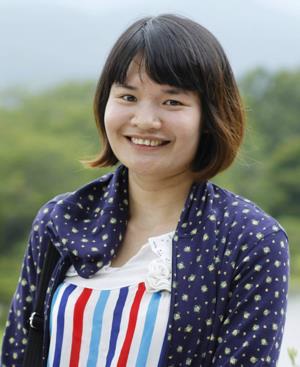
Ms. Pham Thi Thanh is a researcher specializing in environment and aquatic animal pathology at the Research Institute for Aquaculture No. 1 (RIA1). She holds a Master’s degree in Aquatic Science from the University of Tsukuba, Japan, and a Bachelor’s degree in Aquaculture from Nha Trang University, Vietnam. With over a decade of experience, Ms. Thanh has developed expertise in aquatic animal health management, aquatic diseases, environmental monitoring in aquaculture, and remote sensing applications. She has contributed to various research projects, leveraging remote sensing technologies to assess environmental changes and their impacts on aquaculture systems. Ms. Thanh has published multiple scientific papers in international and national journals, focusing on topics such as climate change risks, aquatic health management, and ecosystem interactions, demonstrating her commitment to advancing sustainable aquaculture practices.
Dr A.B.M. Mahfuzul Haque (WorldFish, Malaysia)
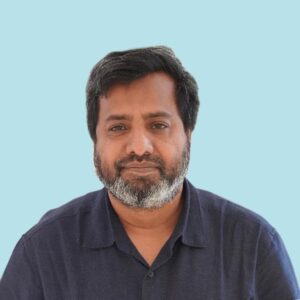
Dr A.B.M. Mahfuzul Haque is as Researcher/Monitoring Evaluation Manager in the ECOFISH II project in WorldFish Bangladesh office. He has completed his PhD in Social Science Department from Wageningen University, The Netherlands in 2015 and diploma in Community Based Development from Coady International Institute, St. Francis Xavier University, Nova Scotia, Canada in 2004. He has obtained his B.Sc. and MS degrees in Agricultural Economics from Bangladesh Agricultural University.
He is trained in the areas of social and economic aspects of fisheries and aquaculture, livelihood, microeconomics and quantitative economics by working in WorldFish and non-government organizations. He also has developed his expertise on agribusiness, finance, and production economics, economic assessment, monitoring and evaluation and ex-ante and ex-post impact evaluation. His experience in research in fisheries, aquaculture, household income, small farm business, and technology adoption in relation to farm household performance spans over 15 years with CGIAR. His twenty-five peer review papers have been published in international journals.
Dr David Verner-Jeffreys (WorldFish, Malaysia)
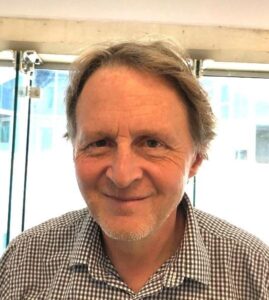
Dr David Verner-Jeffreys is a Senior Scientist and Science Team Lead for Aquatic Animal Health at WorldFish. He leads on WorldFish’s activities to help farmers in Asia and Africa to identify and effectively manage disease threats, supporting the sustainable development of the aquaculture industry in the countries it works in. Main areas of expertise in which David operates are; aquatic animal diseases, leading investigations into unexplained mortalities and, more fundamentally the biology of the major bacterial pathogens of fish and shellfish. He was also involved in the development, testing and registration of aquaculture medicines (vaccines and pharmaceuticals). Prior to joining WorldFish in 2024, David worked for Cefas (Centre for Environment Fisheries and Aquaculture Sciences), based at their Weymouth Laboratory, since 2003. He obtained his PhD from the University of Glasgow in 2000 on Infection and Immunity. David’s main role at Cefas was leading work on aquatic antimicrobial resistance (AMR). Cefas, together with the UK’s Animal Plant Health agency and Veterinary Medicines Directorate have formed the UK FAO Reference Centre for AMR FAO. For this he helped secure funding from the Fleming Fund, the UK’s Foreign, Commonwealth and Development Office and Department for Food, Environment and Rural Affairs to deliver advice and training on antimicrobial use and AMR to partner countries.
Dr Jerome Delamare-Deboutteville (WorldFish, Malaysia)
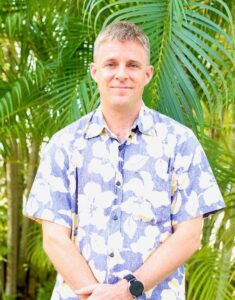
Dr. Jérôme Delamare-Deboutteville is a Scientist at WorldFish Center, Penang, working with the Aquatic Animal Health and One Health teams. He earned his PhD from the University of Queensland in 2014, focusing on Streptococcus agalactiae, an emerging bacterial disease impacting wild fish species in Australia. Following his PhD, Jérôme contributed to various vaccine development projects, including autogenous and recombinant vaccines for barramundi, grouper, Atlantic salmon, and kingfish. His expertise spans infectious diseases in tilapia and other warm-water fish species, fish epidemiology, biosecurity, disease diagnostics, genomics, microbiome research, and bioinformatics. Recently, his team has developed advanced molecular tools leveraging PCR and Nanopore-based sequencing to investigate the intricate microbiomes of tilapia. These cutting-edge methods are being applied to better understand the complex microbiomes associated with tilapia health and production systems.
Phan Ky Trung (DRAGON Institute, Can Tho University, Viet Nam)
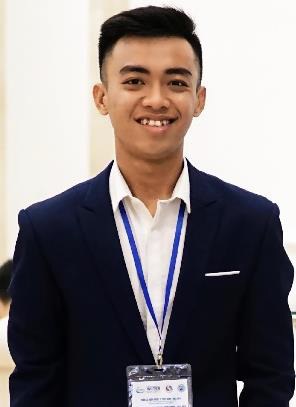
Phan Ky Trung (Mr.), a human-geographer, who has been working as a senior researcher in Research Institute for Climate Change (DRAGON-Mekong), Can Tho University. Apart from academic background and scientific research activities, being a British Government-funded Chevening alumnus 2019/20, he has been taking leading roles in the community development pillar of the DRAGON-Mekong via various projects and programmes terminating at marginalised and youth communities. He has backgrounds in Environment and Natural Resources Management (BEng) and Water Resources Management (MSc). He has been deeply interested in developing his research intention focusing on potential interventions and pathways to reduce climate change vulnerability in the Mekong Delta Region via developing the system dynamics modelling taking bio-physical variations, policy changes, indigenous knowledge influence and migration into account.
